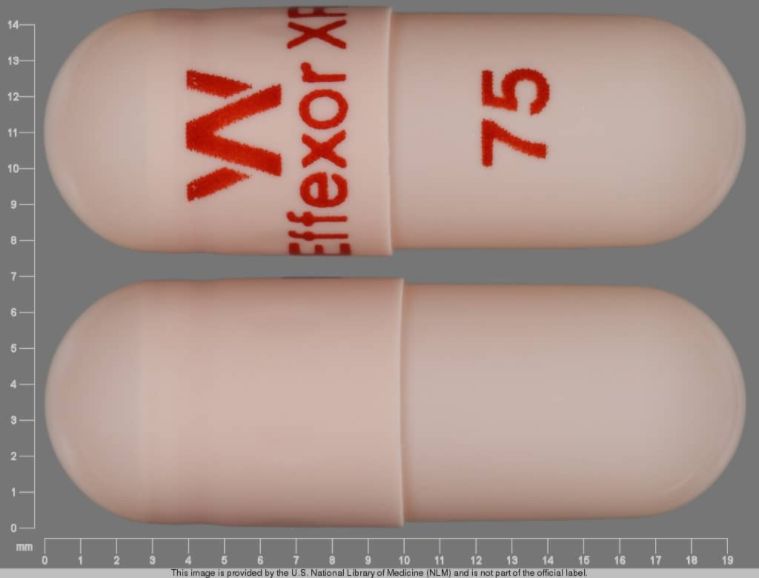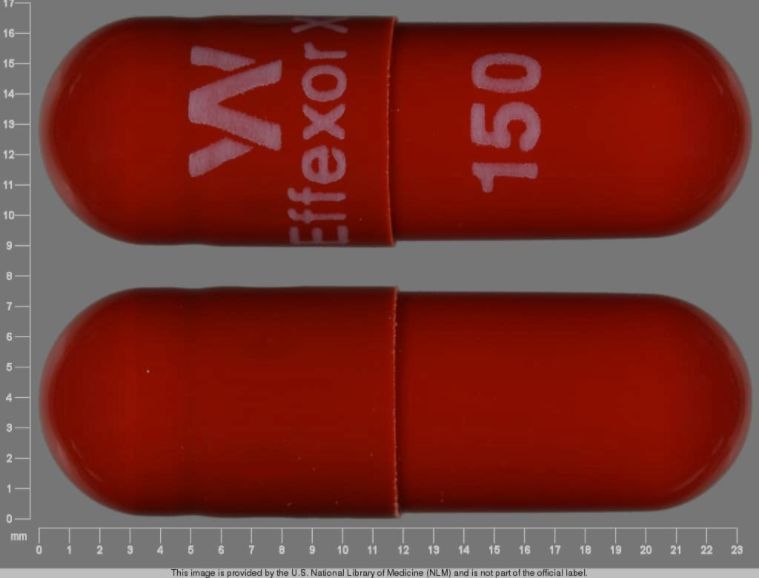Drug Class: Antidepressant, Miscellaneous
Table of Contents


Overview
Effexor (Venlafaxine) is used to treat depression and social anxiety disorder / social phobia. It works by improving energy level and mood and helps to restore interest in daily living. It may also reduce anxiety, fear, unwanted thoughts, and lower the number of panic attacks. This medicine may be used for other conditions as determined by your doctor.
Venlafaxine is a serotonin-norepinephrine reuptake inhibitor (SNRI). It inhibits the return of two chemicals (serotonin and norephinephrine) back into nerve cells. This helps to restore balance of these chemicals which in turn helps to improve mood and relieve depression.
This information is for educational purposes only. Not every known side effect, adverse effect, or drug interaction is in this database. If you have questions about your medicines, talk to your health care provider.
How to Take It
Take this medicine with food either in the morning or evening about the same time every day. Each capsule should be swallowed whole with water and not divided, crushed or placed in water.
Side Effects
Side effects that may occur while taking this medicine include:
- trouble sleeping
- nausea, vomiting, loss of appetite
- nervousness
- drowsiness
- blurred vision
- dizziness
- diarrhea
- dry mouth
- changes in sexual function
- constipation
Contact your doctor immediately if you experience:
Warnings & Precautions
- DO NOT abruptly stop this medicine without talking to your doctor.
- Tell your doctor or pharmacist if you are allergic to it before using venlafaxine or desvenlafaxine. Inform your doctor of any other allergies you have.
- DO NOT use this drug if you have taken an MAO inhibitor in the past 14 days.
- If you have uncontrolled narrow-angle glaucoma or if you are being treated with methylene blue injections, DO NOT take venlafaxine.
- It is important that you know how you react to this medicine before driving or performing other tasks that require your full attention. It may make you dizzy or drowsy.
- This medicine should not be given to anyone younger than 18 years old without consulting a doctor. Venlafaxine is not approved for use in children.
- For an overdose, seek medical attention immediately. For non-emergencies, contact your local or regional poison control center at 1-800-222-1222.
Drug Interactions
Patients taking MAO inhibitors should not be take this medicine. Do not take St. John’s Wort with this medicine.
Dosage & Missed Dose
Venlafaxine is available in extended release capsules and immediate-release tablets.
The dose is usually split up and taken with food 2 or 3x / day with food, if you are taking the immediate-release pill.
The dose should be taken at breakfast or dinner if using the extended-release capsules (tablets in the generic form). Dose should be taken around the same time every day. The capsules should be swallowed whole and not crushed or chewed.
If you miss a dose, take your next dose as soon as you remember. If it is time for your next dose, skip the missed dose and go back to your regular schedule. Do not double doses or take extra medicine to make up for the missed dose.
Storage
Keep this medication in the container it came in, tightly closed, and out of reach of children. Store it at room temperature and away from excess heat and moisture (preferably not in the bathroom). Throw away any medication that is outdated or no longer needed.
Pregnancy/Nursing
Serious lung problems or other complications in the baby may occur when taking an SSRI antidepressant during pregnancy. However, you may have a relapse of depression if you stop taking your antidepressant. Inform your doctor if you are pregnant.
You should not breast-feed while using Venlafaxine. This medication can pass into breast milk and may harm a nursing baby.
More Information
For more information, talk to your doctor, pharmacist or health care provider, or you can visit this website, https://www.nlm.nih.gov/medlineplus/druginfo/meds/a694020.html for additional information from the manufacturer of this drug.